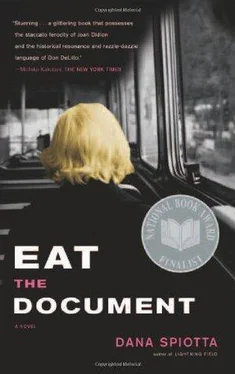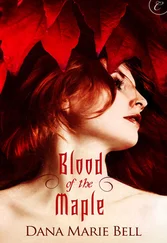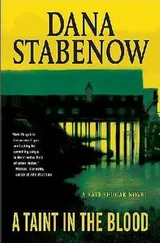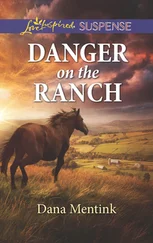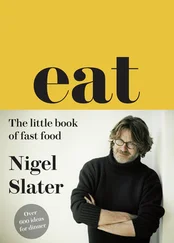Dana Spiotta - Eat the Document
Здесь есть возможность читать онлайн «Dana Spiotta - Eat the Document» весь текст электронной книги совершенно бесплатно (целиком полную версию без сокращений). В некоторых случаях можно слушать аудио, скачать через торрент в формате fb2 и присутствует краткое содержание. Год выпуска: 2006, Издательство: Scribner, Жанр: Современная проза, на английском языке. Описание произведения, (предисловие) а так же отзывы посетителей доступны на портале библиотеки ЛибКат.
- Название:Eat the Document
- Автор:
- Издательство:Scribner
- Жанр:
- Год:2006
- ISBN:нет данных
- Рейтинг книги:3 / 5. Голосов: 1
-
Избранное:Добавить в избранное
- Отзывы:
-
Ваша оценка:
- 60
- 1
- 2
- 3
- 4
- 5
Eat the Document: краткое содержание, описание и аннотация
Предлагаем к чтению аннотацию, описание, краткое содержание или предисловие (зависит от того, что написал сам автор книги «Eat the Document»). Если вы не нашли необходимую информацию о книге — напишите в комментариях, мы постараемся отыскать её.
shifts between the underground movement of the 1970s and the echoes and consequences of that movement in the 1990s. A National Book Award finalist,
is a riveting portrait of two eras and one of the most provocative and compelling novels of recent years.
Eat the Document — читать онлайн бесплатно полную книгу (весь текст) целиком
Ниже представлен текст книги, разбитый по страницам. Система сохранения места последней прочитанной страницы, позволяет с удобством читать онлайн бесплатно книгу «Eat the Document», без необходимости каждый раз заново искать на чём Вы остановились. Поставьте закладку, и сможете в любой момент перейти на страницу, на которой закончили чтение.
Интервал:
Закладка:
Gage couldn’t really give any answers, or any normal ones. He was eating heartily, though, and talking through his food, so that in fairly regular, small intervals partially masticated bits would fly from his mouth. Amazing. It wasn’t as if Gage was saying anything scintillating or really of any consequence at all — surely we could all bear to wait the three seconds it would take until he swallowed his food and chased the swallow with a large gulp of the gold-hued wine from the 750-milliliter bottle. Which, by the way, we finished in no time.
I didn’t like the scotch-and-butter smell of the wine. Or the glistening raw yolk yellow of it, but I did like the buzz.
“Why did you leave Los Angeles?” I heard her say as we began bottle two.
“My recording career didn’t really take off,” Gage said.
“Did you make a living at it?”
The wine was making me more generous. You know what, it made me less bored. I actually listened to this conversation. I listened to it raptly. It compelled me.
“I did some gigging, but mostly I bartended and wrote some rock criticism, which I rarely got paid for.”
“I’d like to read it,” I said. I really meant it, too.
“Do you like music as much as your son?” Gage finished his food and pushed his plate back toward the center of the table. After he asked his question, I saw him eyeing the remaining food on my mother’s plate. He wanted more, but instead he refilled his empty glass, killing the second bottle.
“I do like music, of course. I mean I used to, quite a bit. I don’t listen to much anymore,” she said. She got up and started clearing the dishes. She returned to the table with another bottle of the same wine. She smiled slightly and went back to the kitchen. We could hear her washing dishes. Gage opened the bottle.
“So what happened to your dad?” he said to me in a semi-whisper.
“Dead,” I said, not whispering at all. He nodded like he expected the story.
“Eight years ago he was driving home one night. It was during a snowstorm — do you remember the year we had that freak blizzard? The roads weren’t cleared, so conditions were pretty bad. He drove off the road and crashed in a field. He saw some lights, which I guess he thought were a nearby house, but the lights were on the other side of the field. He got about halfway there and passed out in the snow. He died of hypothermia.”
“No shit.”
“He was totally drunk. He was also a drug dealer. Neither of which I know, of course. All I know is that he was a contractor who died in a car wreck.”
“Really.”
“He even did time for drug dealing. As I said, I don’t know any of this.”
“Actually, I think I heard something about that.”
“Of course. It just required the most nominal investigating to verify what happened.”
“She seems pretty sad about it still.”
“Just look at the newspaper report. Five minutes on Lexis-Nexis. But I never talk to her about it. It is clear she doesn’t want to discuss it, so it’s not like I have to pretend not to know. It never comes up. It’s easy. It’s amazing how easy it is to live with not talking about the Big Things. Particularly of the past.”
“She must miss him, she seems—”
“She’s always been like that.”
“Like what?”
“Like when I was a kid, I always had this idea that one day she might go out for a bottle of milk and never come back. She would disappear forever.”
Gage looked up. She had appeared again.
“What music were you listening to right before dinner?” she said.
“What did you think of it?” I asked. Gage shook his head.
“I liked it,” she said. She pushed back her hair and readied her little pipe as she spoke. “That voice sounded so familiar. Who was it?”
“Dennis Wilson. He was the drummer for the Beach Boys,” I said.
“Honestly, Jason, I think I know who Dennis Wilson is. I grew up during those days. You’re the one who shouldn’t know who Dennis Wilson is,” she said, now annoyed. Gage laughed.
“I didn’t realize you followed popular music,” I said.
“How much do you have to follow to know the Beach Boys?” she said. “It’s not like the Beach Boys are obscure. I mean Nancy Reagan liked the Beach Boys. I think that disqualifies them from ‘cult’ status.” Gage really guffawed at that. I was unused to my mother being so sarcastic, but I can’t say I didn’t completely deserve it.
I began, calmly, patiently. “The Beach Boys’ extreme commercial popularity is precisely one of the reasons they are cult figures. Cult objects are one of two things: genuinely undiscovered artists and objects that deserved recognition — often with music that is quite conventional, quite as poppy as what is on the charts, but just unheard — or they are famous mainstream artists with secret counterlives in which they created risky, edgy experimental work. Work that very possibly deconstructs their more commercial work. That’s the thing — the perversity of it. The subversive, even courageous, quality. And the price must be paid: sometimes they almost ruin their careers. Usually they get destroyed by their label and the mainstream press. This sort of cult stuff is almost always unconventional, formally radical, hugely ambitious, drug-fueled follies that destroy the artists emotionally and physically. But I don’t expect you to understand my appreciation for the Beach Boys.”
My mother nodded, smiling. She paused for a moment as if she were about to speak, but I had not finished.
“Dennis Wilson is the double whammy, because even though he is well known as the only good-looking Beach Boy, as a musician he is an obscure member of this very famous band—”
“I met Dennis Wilson once,” she said softly.
“—and his solo records are therefore truly cult—” She smiled at me. I stopped for a second. She sucked daintily on her pipe.
“What?”
“I said I met Dennis Wilson once,” she said.
“Are you serious? When?” I said.
“I met him in a bar in Venice Beach. In 1979, I think. Or maybe 1980.”
Okay. A bar in Venice Beach. Do I ask her what she was doing in a bar in Venice Beach? It was pre-me, my mother to be, how can I really imagine that? She is unformed, she is waiting-to-be in my mind. So she started to tell this tale about some scummy bar called the Blue Cantina.
“It was where the surfer guys hung out. And bikers. Hells Angels too.”
I struggled to envision my mother among drunken Hells Angels. But I said nothing. You don’t want to remind them of their audience at this point, at least not until you get the goods.
“Living in Southern California was pretty depressing in those days. You know, everything was less than it could have been. Just casualties everywhere, drugs and venereal diseases. All dissolute and sleazy — that’s what it felt like in 1980. Anyway, I was by myself and I noticed this very tan guy in his late thirties. He was still handsome despite having uncombed hair, a ratty beard and a bloat around his eyes. He wore, I remember, a white linen shirt, which was unbuttoned and hung open. And white painter’s pants. His body was still muscular, his belly was still trim. If you didn’t look too closely, he would seem just fine.” She put down her pipe and picked up her wineglass.
“He kept staring at me, and it was then that I noticed he was barefoot. He had wide, filthy, beat-up feet, and I remember thinking, Why would they let him in with no shoes and pretty much no shirt? He came over to where I was sitting. I knew this would happen because I did make eye contact with him, which is the equivalent of an open invitation in a bar like that.”
I could’ve been spared, couldn’t I, the knowledge that my mother knows the lingua franca of seedy biker bars?
Читать дальшеИнтервал:
Закладка:
Похожие книги на «Eat the Document»
Представляем Вашему вниманию похожие книги на «Eat the Document» списком для выбора. Мы отобрали схожую по названию и смыслу литературу в надежде предоставить читателям больше вариантов отыскать новые, интересные, ещё непрочитанные произведения.
Обсуждение, отзывы о книге «Eat the Document» и просто собственные мнения читателей. Оставьте ваши комментарии, напишите, что Вы думаете о произведении, его смысле или главных героях. Укажите что конкретно понравилось, а что нет, и почему Вы так считаете.
